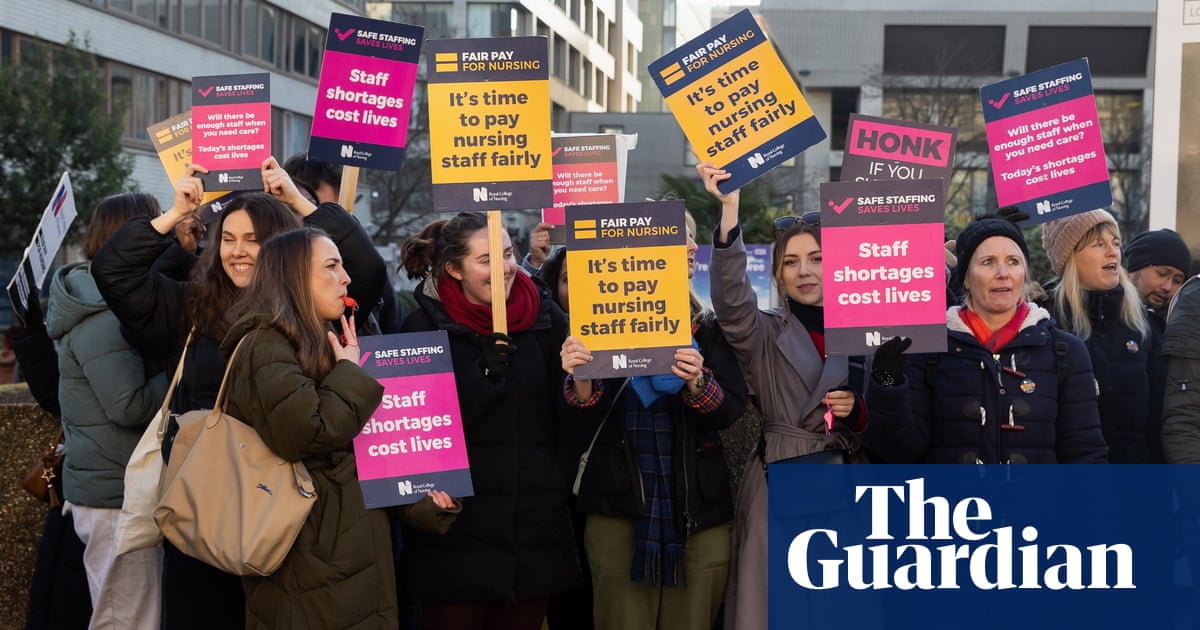
Fears that the government is quietly planning to renege on promises to lift the ban on onshore windfarms in England have prompted a large group of green campaigners, business leaders and prominent figures to protest to ministers.
Hugh Fearnley-Whittingstall, the chef and environmental campaigner, has led a letter to secretaries of state, signed by conservation groups, academics and business people who are concerned that the pledges to free up planning restrictions are being quietly subverted.
The effective ban was put in place in 2015 by tightening planning restrictions in the National Planning Policy Framework. To end the ban, the relevant planning regulations should be scrapped or clearly reformed.
But the signatories to the letter, seen by the Guardian, believe that ministers will instead offer only minor changes that will still prevent onshore windfarms from being built. A consultation on the issue is open now, and closes on Thursday.
The campaigners fear that by hiding behind obscure footnotes in the regulations, the government will be able to retain the restrictions in effect, while claiming to have reformed them.
Fearnley-Whittingstall said: “Poll after poll makes it clear there is an overwhelming public majority in favour of onshore wind, and communities are standing by with great wind-power projects that they know will help the environment and bring down their energy bills. Yet the government apparently just doesn’t get it. They are not only totally out of sync with the people on onshore wind, they are floundering on their own commitment to net zero.”
The letter warns: “The proposed changes to the National Planning Policy Framework which are currently under consultation are entirely inadequate to bring about the required change in policy. The decision to replace [paragraph 158] Footnote 54 with some marginally revised wording, in the form of new Footnotes 62 & 63, looks to be almost identical in effect, and inevitably means the effective ban will remain in place.”
The footnotes refer to a clause in the framework that effectively excludes onshore windfarms. The signatories called for the removal of these footnotes, to place onshore wind planning applications on the same planning basis as other onshore infrastructure projects.
The signatories went on: “Let’s end a policy that hampers both climate progress and energy security and open up the possibility of wind power across England.”
The 116 signatories include former chief scientific adviser Sir David King, former food adviser Rosie Boycott, broadcasters including Kevin McCloud, Chris Packham and Liz Bonnin, business leaders Deborah Meaden and Mary Portas, civil society organisations including RSPB, the Soil Association and the National Federation of Women’s Institutes.
Asked whether the government was planning to end the onshore wind ban, Graham Stuart, minister for climate change, said: “We are working hard to ensure more onshore windfarms can go ahead with community support.”
Paragraph 158 of the National Planning Policy Framework refers to planning applications for renewable energy and low-carbon development, and requires local authorities to accept such applications barring major reasons not to.
But this is subject to footnote 54, which reads: “Except for applications for the repowering of existing wind turbines, a proposed wind energy development involving one or more turbines should not be considered acceptable unless it is in an area identified as suitable for wind energy development in the development plan; and, following consultation, it can be demonstrated that the planning impacts identified by the affected local community have been fully addressed and the proposal has their backing.”
This footnote effectively allows even a single objection to a wind turbine application to override the recommendation to proceed with the windfarm. It operates as an effective ban, and only two onshore wind turbines were built last year in England as a result.
But the government’s current changes would only revise “fully” to “satisfactorily”, and replace “backing” with “support”. That would not be enough to remove the ban, the letter’s signatories wrote.
Fearnley-Whittingstall said: “The government says they are consulting the public on onshore wind, but it feels like the consultation document has been made deliberately difficult to engage with and wilfully obscure. Instead of simply asking the public if they want the ban lifted so we can have more onshore wind in England, they ask them to comment on some feeble word changes in a couple of revised footnotes. It’s just pathetic.”
Nick Bruce-White, interim director of RSPB England, said: “Mindful and effective planning can ensure new onshore wind turbines are positioned away from the areas that are sensitive to wildlife. So it is unfathomable as to why government seems not to be supporting this tried and tested renewable technology to grow our clean energy supply as we look to reach a net zero power grid by 2035.”
Dale Vince, chief executive of renewable energy supplier Ecotricity, said the ban was “absurd and dishonest” as polls show most Tory voters support onshore windfarms. “We have a cost of living and energy bill crisis, not to mention a climate one – and onshore wind is the fastest, cleanest and cheapest form of energy we can build,” he said. “If it were unshackled we could reach 100% green on the grid in 10 years and with no public money. It’s dishonest because the Tories claim the ban is because onshore wind is unpopular. The truth is the country is united in support of onshore wind; recent polling shows even 80% of Tory voters support it.”












